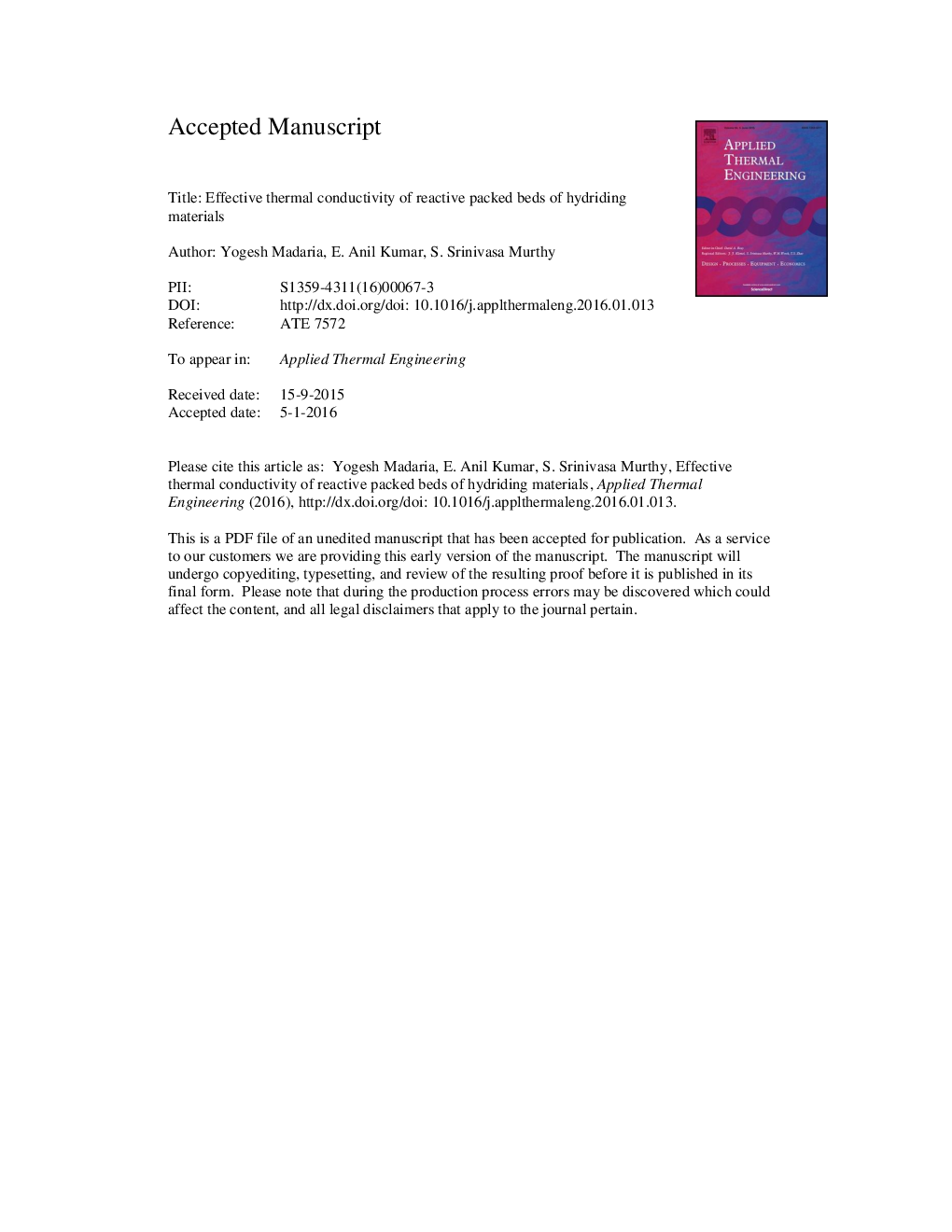| Article ID | Journal | Published Year | Pages | File Type |
|---|---|---|---|---|
| 7048691 | Applied Thermal Engineering | 2016 | 53 Pages |
Abstract
Applications of hydriding materials for solid state hydrogen storage, hydrogen compression, thermal energy storage and sorption heating and cooling systems have been demonstrated successfully. However, the performance of these devices significantly depends upon heat and mass transfer characteristics of the reactive packed beds. One of the important parameters regulating heat and mass transfer in the hydriding bed is its effective thermal conductivity (ETC), which is dependent on several operating parameters such as pressure and temperature. ETC also varies significantly due to the variation of hydrogen concentration during the hydriding and dehydriding processes. Based on the extensive studies done by the authors on ETC of metal hydride beds, a review of experimental methods, mathematical studies and augmentation techniques is presented in this paper, with emphasis on the effects of operating parameters on ETC.
Related Topics
Physical Sciences and Engineering
Chemical Engineering
Fluid Flow and Transfer Processes
Authors
Yogesh Madaria, E. Anil Kumar, S. Srinivasa Murthy,
